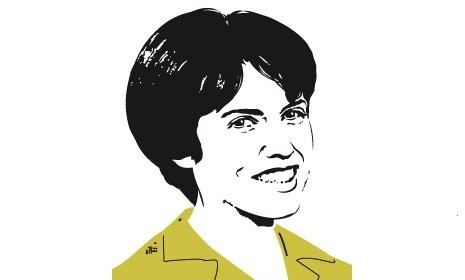The China conundrum
We all support more human rights and political freedom in China. But does anyone really know how to achieve that—or what it would even mean to the Chinese?

A free daily email with the biggest news stories of the day – and the best features from TheWeek.com
You are now subscribed
Your newsletter sign-up was successful
Does it make sense to consider human rights without considering the humans in question?
I've wrestled with this quandary in every politically oppressed place I've ever been, and I've certainly wrestled with it in China.
When I arrived, I saw the situation thus: Since the Nixon-era rapprochement, the U.S. has had both an interest in cultivating China economically and an obligation to correct China morally. In decoupling the two issues, first tacitly and then explicitly, the U.S. defanged itself in the moral fight, and resigned itself to slinking in shame all the way to the bank.
The Week
Escape your echo chamber. Get the facts behind the news, plus analysis from multiple perspectives.

Sign up for The Week's Free Newsletters
From our morning news briefing to a weekly Good News Newsletter, get the best of The Week delivered directly to your inbox.
From our morning news briefing to a weekly Good News Newsletter, get the best of The Week delivered directly to your inbox.
Now, I see it a little differently, largely because the Chinese seem to see it differently. Of course, I do not speak for any Chinese, let alone 1.3 billion of them. But based on my admittedly limited experience, Chinese people do not want exactly what I think they should want in the way of democracy and human rights, and they certainly don't want it on my schedule. And that, I must tell you, is unsettling.
This is a not a new muddle for me. It is, in fact, the same muddle I ended up with in the Middle East, after years of conversations with intelligent, educated, strong Muslim women who passionately supported a system of sharia law that totally stripped them of their rights, up to and including their right not to be killed by their male relatives. Those conversations didn't make me fond of sharia law, but they forced me to see the weird fact that, sometimes, advocating for freedom can be at odds with the will of those to be freed. Likewise, my time in China has done absolutely nothing to diminish my belief in democracy for everyone, everywhere. But it has chastened my view of how it could, or should, happen.
Just to throw out a few of the pieces that don't fit into my neat human-rights puzzle:
For purposes of Western idealism, “human rights in China” tend to be conceived as a single goal, with various, equally worthy sub-goals: democracy for Chinese people; freedom for Tibet; a morally purified alliance with the United States. Perhaps because all these developments are so securely locked in the realm of theory, it is rarely pointed out how divergent they would likely be in practice. If tomorrow, Chinese people got the vote, it's unimaginable that they would vote to free Tibet, let go of Taiwan, embrace their ethnic minorities, or fall into line with the U.S.
A free daily email with the biggest news stories of the day – and the best features from TheWeek.com
A related problem is as hard to solve as it is easy to state: Oppression works. Just because a regime has self-servingly engineered the mentality of a society does not mean that that mentality isn’t real. I have met Chinese people who believe that in the U.S., people have the right to own guns and, therefore, everybody goes around shooting everybody. They view that as a pretty good reason to be wary of this freedom business. Some “know” more about J. Edgar Hoover's plot to assassinate JFK than they know about what happened in Tiananmen Square in 1989. Many are more upset by what the Japanese did to their grandparents than by what their own government has done to them. Sure, those views have to varying degrees been willfully engendered from above, and could be willfully replaced. But that would entail the replanting of a nation's mental forest, not the flip of a switch.
Finally, it's not as if there's zero authentic overlap between the government line and the popular one. Partly for reasons of official propaganda, but also through deep personal or family acquaintance with poverty, war, and starvation, plenty of Chinese seem sincerely to believe that there is more to be feared from political instability than from political repression.
Again, I'm not accepting or agreeing with any of this. I'm just pointing out that it's there.
So, to appropriate Tolstoy's ultimate question: What, then, must we do?
As outsiders, how do we realistically foster human rights and democratic political development in China?
I don't know.
I've got a whole big list I can go down, from more visas for Chinese to study in the U.S. to more everyday uses of the economic relationship as leverage against corruption. But really, I don't know.
And to be honest, I’m pretty sure that the great moralists and foreign-policy sages who pontificate in this area don’t know, either.